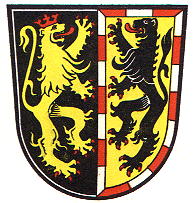Hof (kreis): Difference between revisions
Jump to navigation
Jump to search
Knorrepoes (talk | contribs) m (Text replace - "'''Origin/meaning :'''<br/>" to "====Origin/meaning====") |
Knorrepoes (talk | contribs) m (Text replace - "|width="15%"|50 px|right |} " to "|width="15%"|50 px|right |}<seo title="Wappen, Gemeindewappen" /> ") |
||
| Line 3: | Line 3: | ||
|width="70%" align="center" |'''Heraldry of the World<br/>Civic heraldry of [[Germany]] - [[Deutsche Wappen|Deutsche Wappen (Gemeindewappen/Kreiswappen)]]''' | |width="70%" align="center" |'''Heraldry of the World<br/>Civic heraldry of [[Germany]] - [[Deutsche Wappen|Deutsche Wappen (Gemeindewappen/Kreiswappen)]]''' | ||
|width="15%"|[[File:Germany.jpg|50 px|right]] | |width="15%"|[[File:Germany.jpg|50 px|right]] | ||
|} | |}<seo title="Wappen, Gemeindewappen" /> | ||
'''HOF (HO)''' | '''HOF (HO)''' | ||
Revision as of 19:18, 5 November 2012
| Heraldry of the World Civic heraldry of Germany - Deutsche Wappen (Gemeindewappen/Kreiswappen) |
HOF (HO)
State : Bayern
Additions : 1973 Münchberg, Naila, Rehau
Origin/meaning
The arms show the lions of the lords of Weida and the counts of Nürnberg.
The lords of Weida established a centre of influence around the town of Hof, after the counts of Andechs-Meranien became extinct in 1248. In 1294 they became vassals of the Wittelsbach dynasty, rulers over Bavaria.
In the early 14th century they were succeeded by the baronets of Nürnberg, who bought out Heinrich von Weida in 1373. The whole area became later part of the County of Bayreuth.
Literature : Stadler, K. : Deutsche Wappen - Bundesrepublik Deutschland. Angelsachsen Verlag, 1964-1971, 8 volumes.

